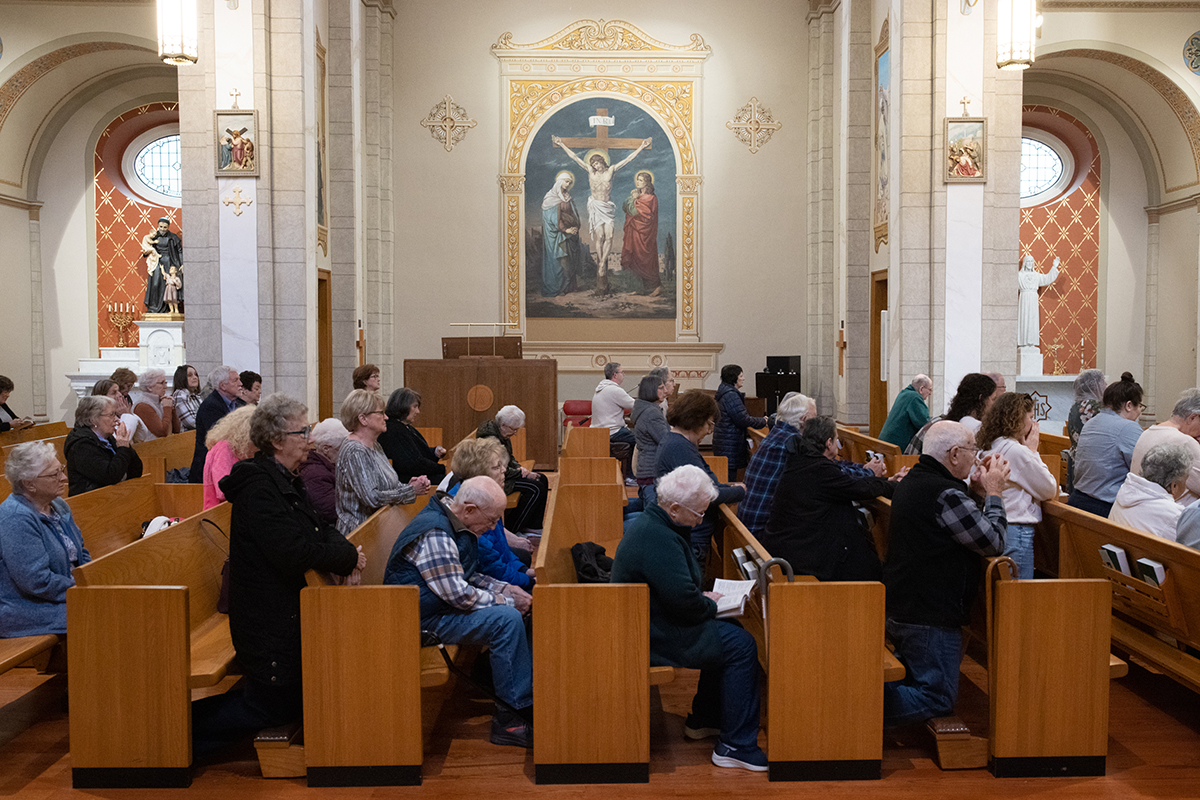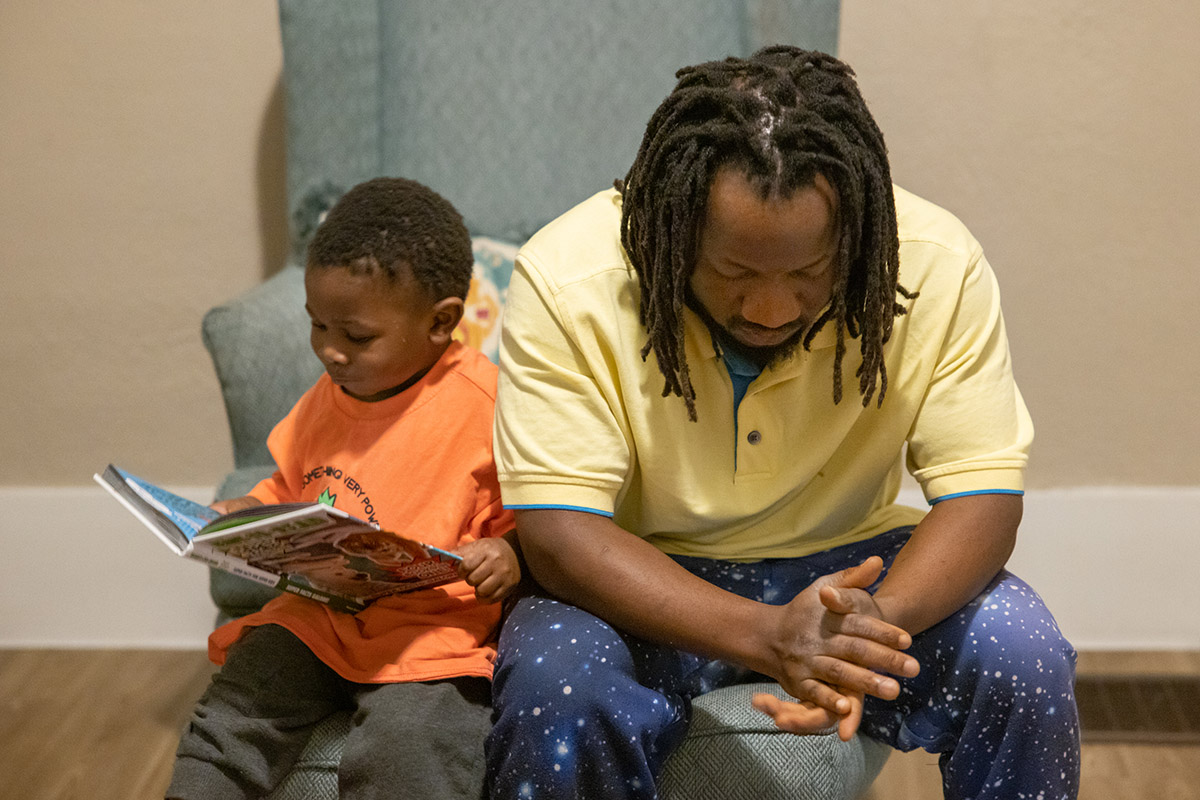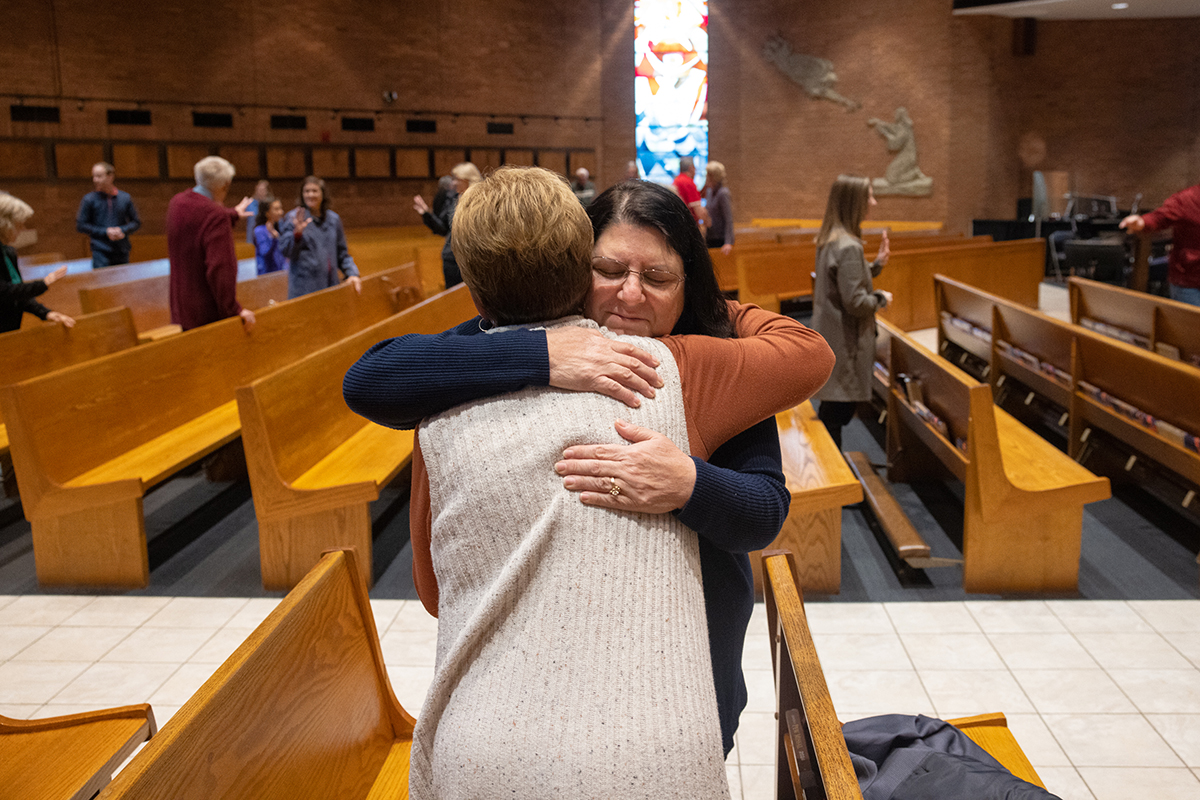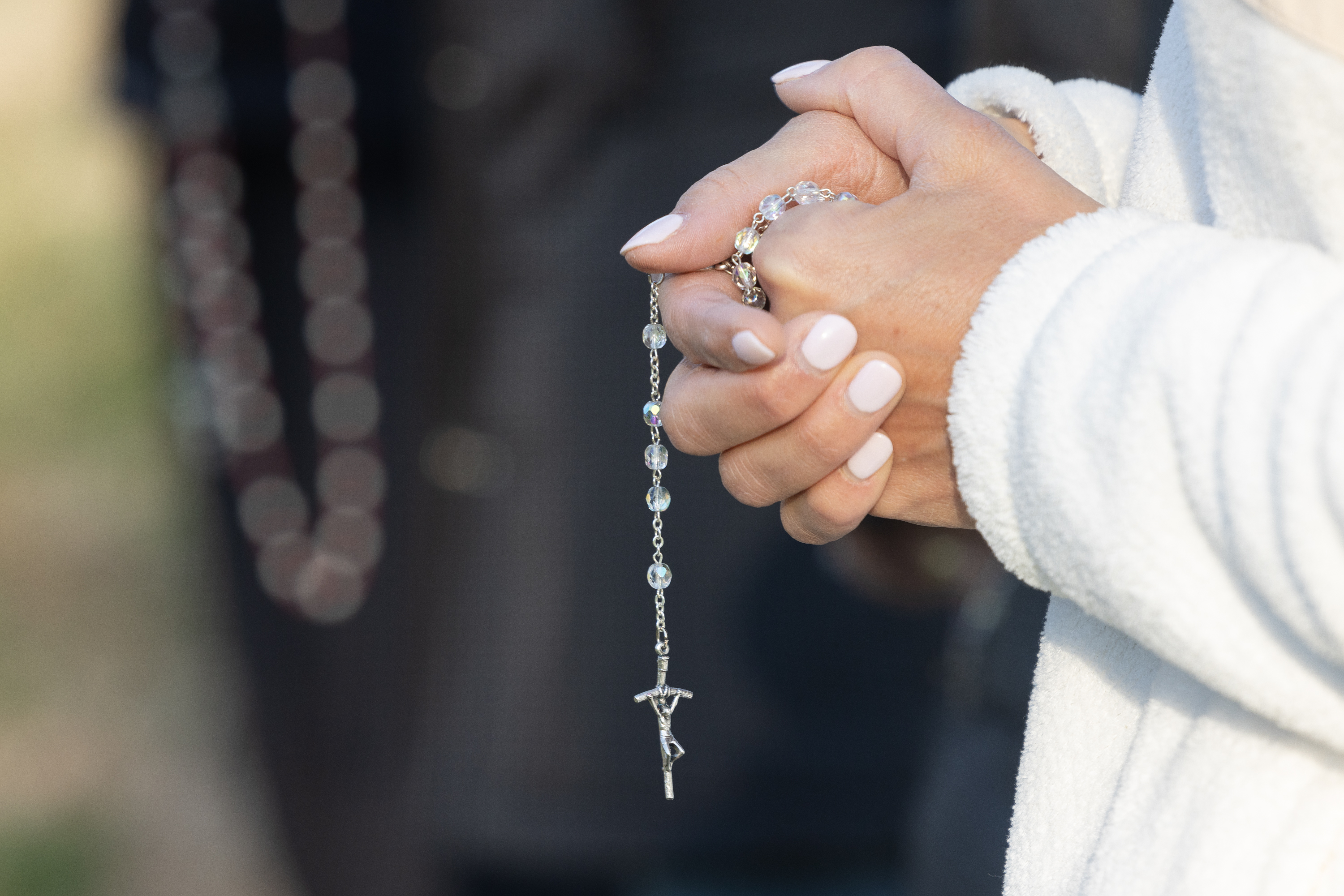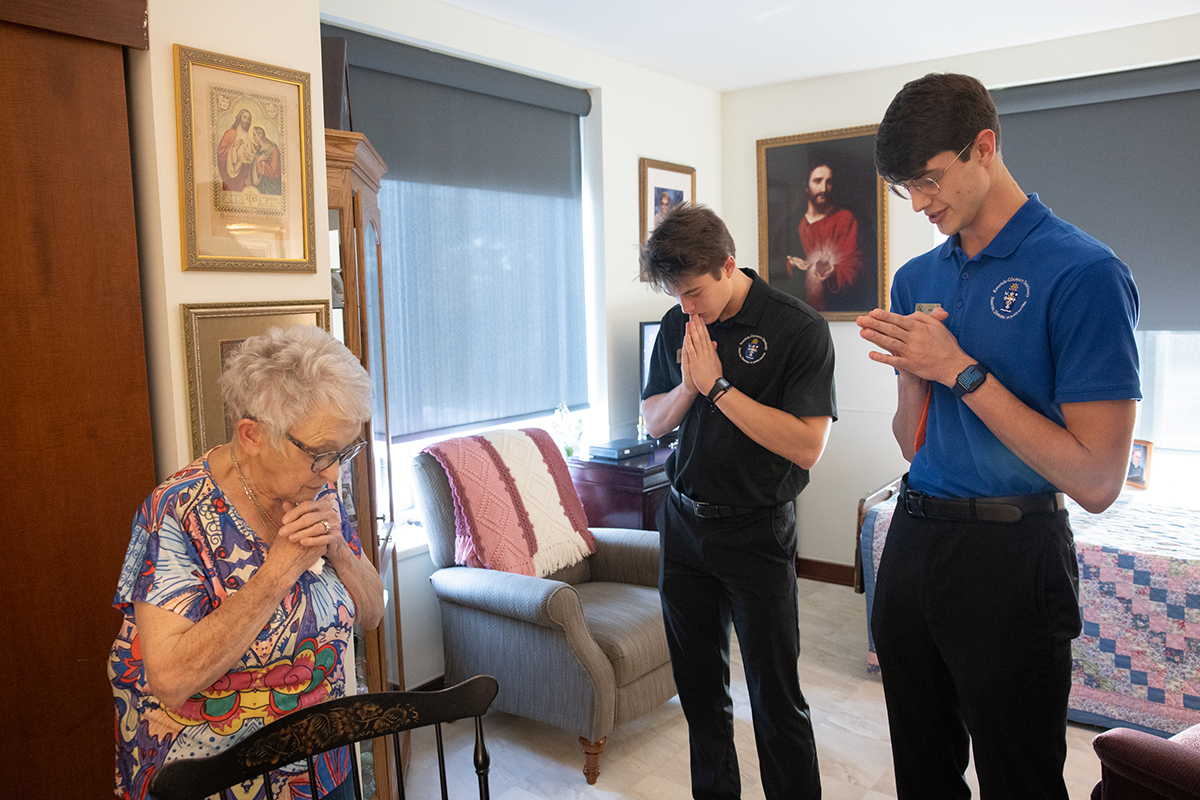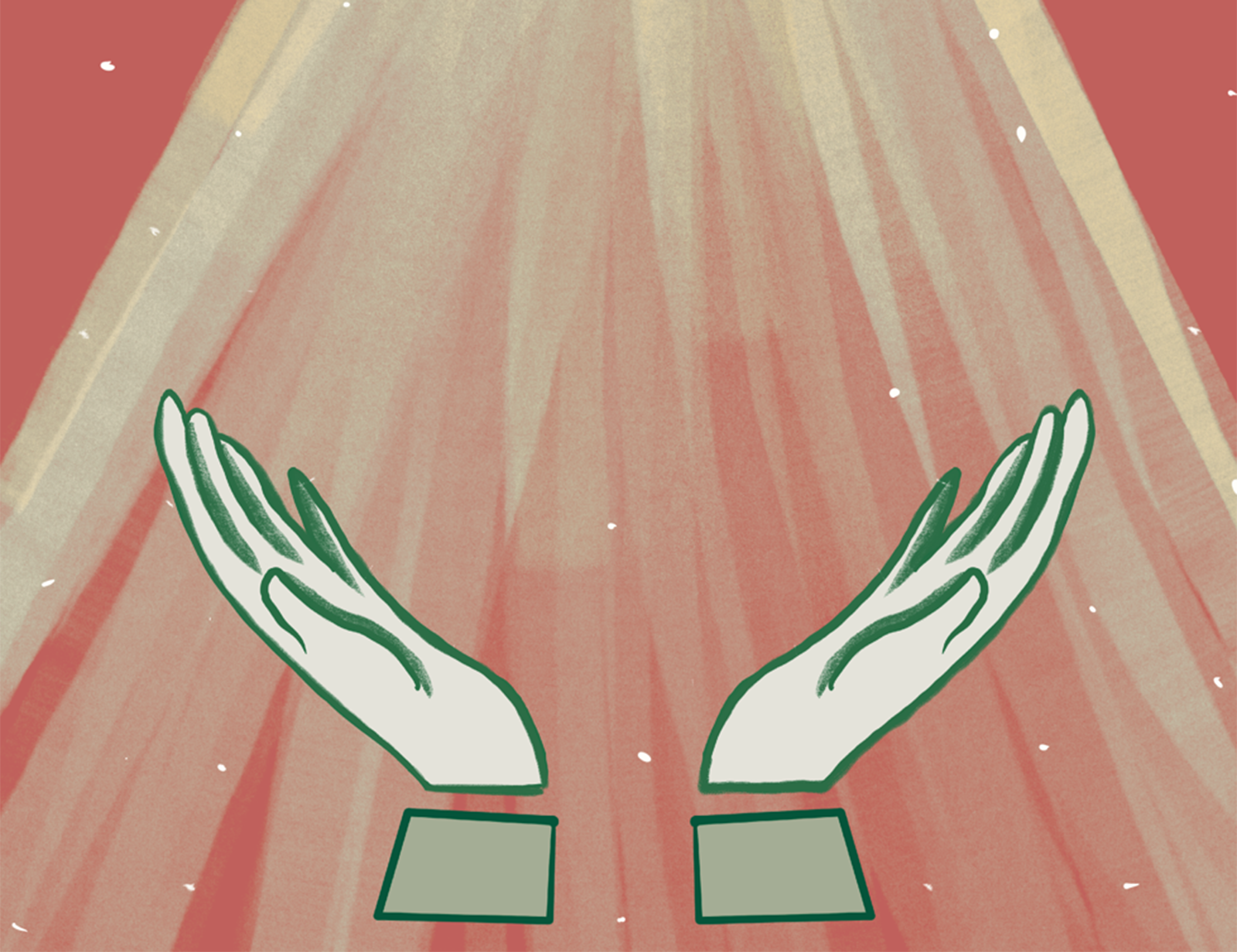Prayer service personalizes atomic bombings
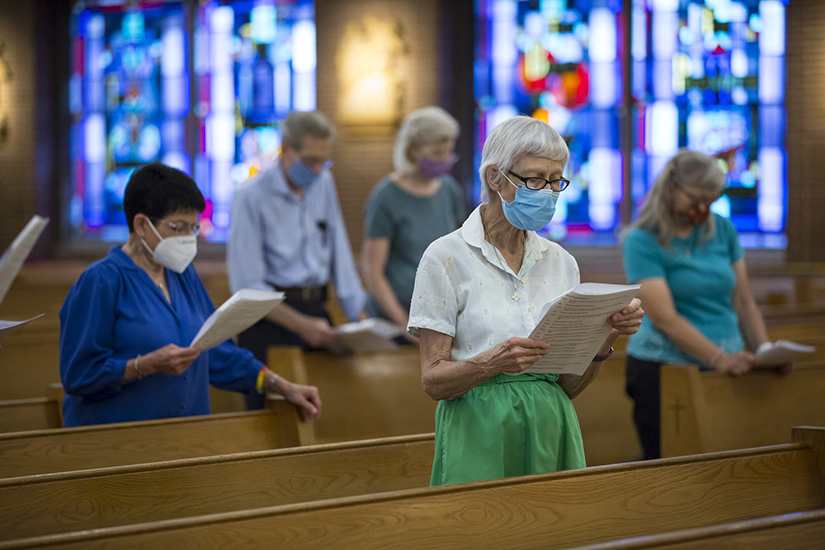
Anniversary of bombing Hiroshima and Nagasaki brings call of ‘we can’t let it happen again’
A prayer service on the anniversary of the atomic bombing of Hiroshima Aug. 6 tackled what organizers called the “difficult and seemingly impossible task of peace” by personalizing the brutality of war.
Held at Holy Name of Jesus Church in northeast St. Louis County, the prayer service cited people affected from the two Japanese cities, Hiroshima and Nagasaki, destroyed by atomic bomb explosions 75 years ago this August, hastening the end of World War II.
Among readings of personal accounts of victims was one by Setsuko Ogawa who spoke at a peace conference in Vancouver in 2005. Ogawa was 15 years old and was with other high school girls working at an aircraft factory less than a mile from the center of the bomb blast. She hid under a workbench and was not injured by the blast; however, she later consumed contaminated water and pumpkin that is linked to what she called “my agonies, sorrows and hard life of continuous illness.”
She also told of the toll of seeing people with severe burns jumping into a river filled with blood, witnessing people “like ghosts walking in procession,” and much more.
Bob Stolte, a Holy Name of Jesus parishioner and organizer of the prayer service, earlier said he still gets choked up at the eyewitness accounts even after holding the annual prayer service for about eight years.
The goal, Stolte said, is to bring awareness of “how horrible it was and how we can’t let it happen again.”
The prayer service marked the anniversary and called for peace and nuclear disarmament. “We are called to be peacemakers. We are called to stand up for peace and a more loving and just society,” he said, asking people to actions such as writing letters to lawmakers.
Petitions during the prayer service included praying to change humanity’s direction; risk vulnerability and “thereby truly walk with our neighbor”; be present “in hope to those around us”; protect all life forms that struggle to survive. They prayed for peace, citing “a broken world where nations raise weapons against nations, and mothers and children are the innocent victims of violence.” Also, “we pray for the ability to overcome our brokenness, cooperating instead of competing across borders and boundaries.”
The yearly prayer service and another on Feb. 20 marking the World Day of Social Justice began after an organization called Justice Grows formed from a workshop at the parish.
Sister Rose Mercurio, SSND, pastoral associate at Holy Name of Jesus, said the Aug. 6 prayer service is a way to unite with the people in Japan “who are still bearing marks” of the bombing.
Beth Lappe, a parishioner of St. Rose Philippine Duchesne Parish in Florissant, said remembering the lives that were lost and affected by the bombing is important to show the sacredness of life from conception to the end of life. “We’re putting names and faces to the people who experienced that,” she said.
Knowing the human cost helps in praying for steps to be taken for peace, she said.
Ogawa, speaking at the Vancouver conference, said she learned at a reunion of her high school class that of the 300 graduates, 60 suffered from breast cancer, 50 had ectopic pregnancies and others had various health ailments. She hoped her eyewitness account shows that “A-bombs should never, ever be used again. If they were to be used, human beings would go extinct. I hope people around the world live together in peace.”
>> The atomic bomb
Heavy casualties sustained in the campaigns at Iwo Jima (February 1945) and Okinawa (April-June 1945), and fears of the even costlier land invasion of Japan led President Harry Truman to authorize the use of a new and devastating weapon. Developed during a top secret operation code-named The Manhattan Project, the atomic bomb was unleashed on the Japanese cities of Hiroshima and Nagasaki in early August.
President Harry Truman traveled to the Potsdam Conference, where he received word of the Trinity Test’s success. Truman used the results as leverage to demand Japan’s unconditional surrender, which Japanese officials opted to ignore. The discovery and harnessing of atomic energy not only served to bring World War II to a rapid and fiery end, but it also placed the United States in a position of global power not held by any other nation following the war’s end. From the race to keep such power out of Nazi hands and to the use of atomic bombs on Japan to end the war, the Manhattan Project pushed humanity across the threshold into a new atomic age that forever altered the nature of conflict and the fear of global warfare.
There has been great difficulty in estimating the total casualties in the Japanese cities as a result of the atomic bombing. The extensive destruction of civil installations (hospitals, fire and police departments, and government agencies) the state of utter confusion immediately following the explosion, as well as the uncertainty regarding the actual population before the bombing, contribute to the difficulty of making estimates of casualties. The Japanese periodic censuses are not complete. Finally, the great fires that raged in each city totally consumed many bodies.
The number of total casualties has been estimated at various times since the bombings with wide discrepancies. The Manhattan Engineer District’s best available figures are: Hiroshima 135,000 and Nagasaki 35,000. (Other estimates, taking into account deaths over a longer term, estimate 200,000 or more in Hiroshima and 75,000 or more in Nagasaki).
Consequences
Archbishop José H. Gomez of Los Angeles, the president of the U.S. Conference of Catholic Bishops, issued a statement about the 75th anniversary of the atomic bombings of Hiroshima and Nagasaki on Aug. 6 and Aug. 9, 1945. “My brother bishops and I mourn with the Japanese people for the innocent lives that were taken and the generations that have continued to suffer the public health and environmental consequences of these tragic attacks.
“On this solemn occasion, we join our voice with Pope Francis and call on our national and world leaders to persevere in their efforts to abolish these weapons of mass destruction, which threaten the existence of the human race and our planet,” Archbishop Gomez said.
A prayer service on the anniversary of the atomic bombing of Hiroshima Aug. 6 tackled what organizers called the “difficult and seemingly impossible task of peace” by personalizing the brutality … Prayer service personalizes atomic bombings
Subscribe to Read All St. Louis Review Stories
All readers receive 5 stories to read free per month. After that, readers will need to be logged in.
If you are currently receive the St. Louis Review at your home or office, please send your name and address (and subscriber id if you know it) to subscriptions@stlouisreview.com to get your login information.
If you are not currently a subscriber to the St. Louis Review, please contact subscriptions@stlouisreview.com for information on how to subscribe.

